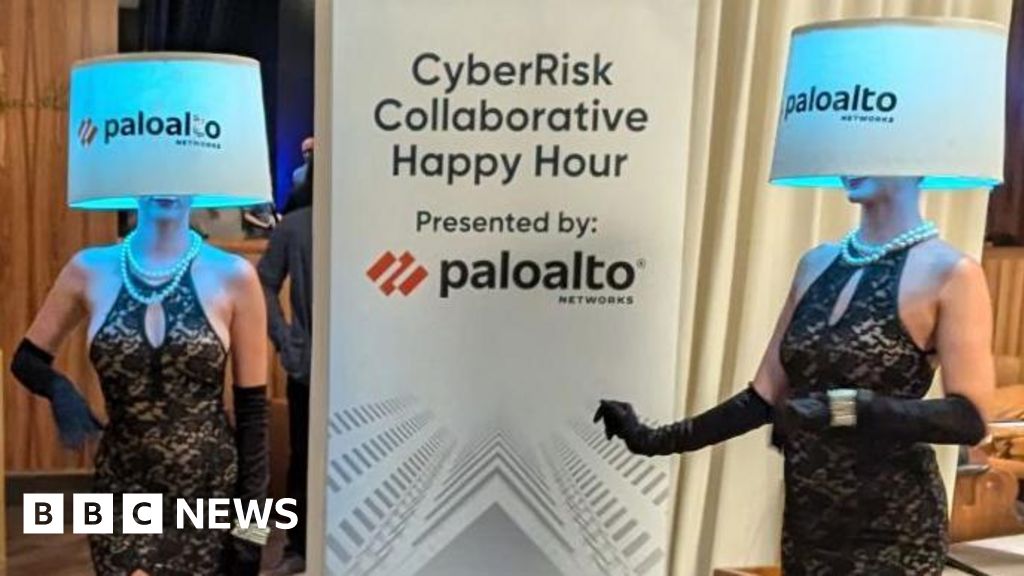The largest cybersecurity company in the US has apologised for using two women posing with company-branded lampshades on their heads at a trade event in Las Vegas.
They were meant to draw attention to Palo Alto Networks’ sponsorship of a “CyberRisk Collaborative Happy Hour” at the Black Hat conference.
But the publicity stunt has sparked a backlash, with critics calling it “sexist”, “creepy” and “tone deaf”.
In a LinkedIn post, the firm’s boss Nikesh Arora admitted it was a misjudgement, saying it was “unequivocally not the culture we support, or aspire to be”.
The company has faced fierce criticism online for the lampshade outfits, which obscured the women’s faces.
“So we women are nothing more than props to you? We are only at BlackHat to be lampshade holders?” asked executive advisor Olivia Rose in a LinkedIn post that eventually prompted Mr Arora’s apology.
“Shame on you – just shame”, she wrote.
The image of the women was taken by LinkedIn user Sean Juroviesky who described the scene as “sexist”.
“What the hell Palo Alto Networks is it 1960?”, he commented.
One Reddit user, who claimed to have been at the event, said they left early as it was “creepy” and “gross”.
The idea for the outfits seems to have been inspired by the so-called “booth babes” of the early days of the Consumer Electronics Show, in the 1960s, where women were hired as hostesses at what were mostly male-attended events.
By the 1990s the use of what were often scantily-clad women in this way started facing a backlash, and by the 2010s it had largely disappeared.
But the male dominance of the tech industry has not gone away – nor have concerns that women are being shut out or treated in sexist ways.
When it shut unexpectedly earlier this year, the tech network Women Who Code said its vision of a tech industry “where diverse women and historically excluded people thrive at every level is not fulfilled”.
One of the few female tech CEO’s Bumble’s Lidiane Jones told the BBC this year it was “still not an equitable journey for women today” in the industry.

